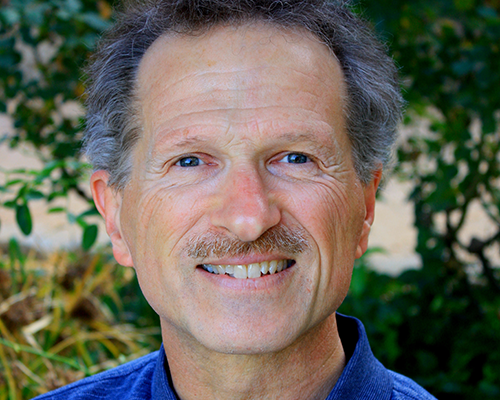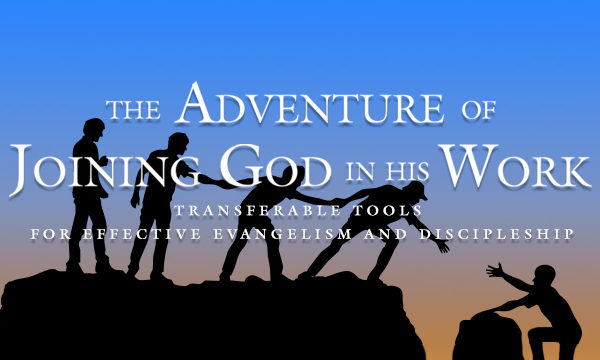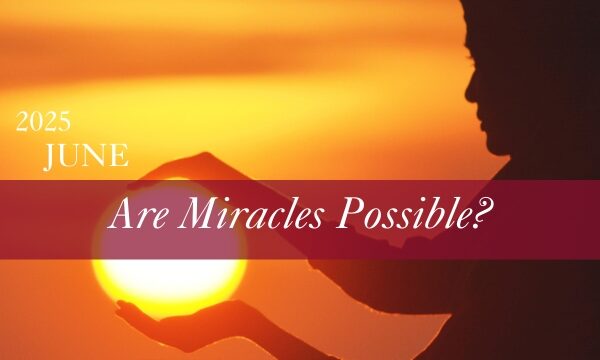Back to series



Brian McLaren, the Emerging Church and the Issue of Foundationalism, Part 2
Part one of this article appeared in the Winter 2006 issue of Knowing & Doing.
Click here to open a Print - Friendly PDF
How Accurate Is McLaren’s Description of Foundationalism?
McLaren claims that modernity has foisted upon the church the mind-set that we must have absolute, bombproof certainty in our Christian beliefs, and the culprit behind the scenes is an epistemological view known as foundationalism. Like many others, McLaren targets this view as the source of the expectation that we cannot ever have doubts and still be a good Christian.1 Based upon that contention, he suggests that we need to move on to a new way of being a Christian in postmodern times, which will allow us room to embrace a new epistemology, one which will not keep pressuring us to not have any doubts. But is he accurate in his description of foundationalism?
We should first observe that the version of foundationalism that McLaren targets is from Descartes. In his quest to find an unshakeable foundation for knowledge, Descartes used a “methodological doubt,” a method by which he tried to doubt all beliefs whatsoever, until he could find one that he thought he could not possibly doubt.
Since it was possible that he could be deceived by a demon, Descartes proceeded to doubt most every belief, but he finally concluded that to even doubt, he must be thinking, and he therefore must exist.
 Descartes’ foundationalism deserves serious criticism, for it raises the “bar” for knowledge far too high. It is exceedingly unrealistic to require certainty in order to have knowledge, and skeptics take advantage at this very point. After all, someone like David Hume could always retort, “Isn’t it just possible [regardless of how unlikely it is] that you could be mistaken?” To be at all honest, we probably should answer that with most beliefs this is possible (i.e., logically conceivable), but once we admit that, skeptics have us where they want us: “But since it is possible you could be mistaken, then by your own standard, that you must have certainty to know, then you cannot know.”
Descartes’ foundationalism deserves serious criticism, for it raises the “bar” for knowledge far too high. It is exceedingly unrealistic to require certainty in order to have knowledge, and skeptics take advantage at this very point. After all, someone like David Hume could always retort, “Isn’t it just possible [regardless of how unlikely it is] that you could be mistaken?” To be at all honest, we probably should answer that with most beliefs this is possible (i.e., logically conceivable), but once we admit that, skeptics have us where they want us: “But since it is possible you could be mistaken, then by your own standard, that you must have certainty to know, then you cannot know.”
McLaren is right to find fault with this kind of foundationalism, for it raises the standard for knowledge too high. There are many things I know, even though it is possible (i.e., is logically conceivable) I could be mistaken. For instance, I know that today I started teaching a new, distance ethics class for Biola University’s apologetics program. While it is possible that I could be mistaken, why should I think that to be the case? I also know that I am married to Debbie, and that we have been married for twenty-one years. Surely it is conceivable that I am mistaken, but, again, where is the evidence that is strong enough to overturn the strength of evidence I have for holding this belief?
Furthermore, I know that 1 + 1 = 2, that murder is wrong, that George W. Bush is president now, that terrorists attacked the United States on Sept. 11, 2001, and that the shirt I now have on is a dark red in color. There are some particular things I simply know, even without utter certainty, and now the burden of proof is on the skeptic to defeat my knowledge claims. I simply rebut the skeptic, and I do not have to shoulder the additional burden of proving him or her to be wrong. Instead, I can justifiably shift the burden onto the skeptic to give reasons why I do not have knowledge in these cases. And, I seem quite entitled to hold these (and other) beliefs as things I do indeed know, even though I just might be mistaken.
But, suffice it to say, Descartes’ form of foundationalism does seem to fall prey to the skeptic. If that were the only viable form of foundationalism, we should wholeheartedly join with McLaren and resign foundationalism to the ash heap of failed philosophical theories. However, it is not the only form, and, despite claims to the contrary, foundationalism is far from dead today.2 To my knowledge, there are no living philosophers who think foundationalism requires certainty in our basic beliefs. Nevertheless, there is a more “modest” version being defended today, one which may have the resources adequate to address McLaren’s and others’ concerns. What then are the contours of this modest foundationalism?
First, a modest foundationalism recognizes that, just as in the kinds of cases I listed above, there are many things we do know, and we seem very entitled to those knowledge claims, even if I do not hold them with “bombproof” certainty. But just because I could be mistaken, why should I believe that I am? A more modest foundationalism also works well with the mind-set that one wants to believe as many truths as possible, and disbelieve as many falsehoods as possible. However, in the pursuit of that admirable goal, we may make mistakes. When we examine our beliefs and find sufficient evidence to the contrary, we may need to reject a belief we used to hold.
We may see that certainty is not required for knowledge by considering the standard philosophical definition of knowledge, which is justified true belief. The certainty requirement enters into discussion at the level of justification, or the evidence available in support of the acceptance (belief) of a proposition as true. A belief must enjoy sufficient evidence for a person to affirm (accept, believe) it, in which case the belief is justified. But justification can come in degrees. Suppose I go for a walk near my office and see a few people walking about in the vicinity with cups in their hands with what looks like a kind of specialty coffee beverage. I may reasonably infer and accept the belief that there is a coffee shop nearby, since these drinks look like they have been freshly made—the cups seem full, with the whipped cream in a peak, and syrup drizzled over the top. If I see that these cups have the word “Starbucks” on them, my belief seems to enjoy more support. If I also see a sign for Starbucks ahead, then my belief that there is a coffee shop nearby has an even higher degree of support.
But, the degree of justification needed for a belief to count as knowledge may vary by person. Others may have evidence that I do not have. For instance, suppose in the above case that I had not seen a sign for Starbucks, and furthermore, there is in fact no such sign nearby. Further suppose that these people walking near me have access to a piece of information unavailable to me, that they had car pooled from work to a restaurant that was actually far from us, and after lunch they all bought Starbuck’s coffees at the shop next to that restaurant. But, they then had driven back to their work location, and now were walking from the parking lot to their offices. In this case, my belief that there is a coffee shop nearby may still remain justified for me, but not for them.
Additionally, the relative weight of the evidence for a belief may change over time, as new evidence is considered. This may be next to impossible, as in cases that rape is wrong, or that 5 + 5 = 10, but in other kinds of cases, the degree of justification for a belief may vary over time, either increasing or decreasing the degree of justification. For example, suppose a Christian student has graduated from his or her Christian high school, having been taught the major Bible doctrines. Then, when that person goes to college and encounters the arguments given by a secular professor against belief in, say, Christ’s resurrection, that person’s degree of justification in that belief may waver and even decrease. However, it also is possible that the person’s degree of justification for that belief may increase after studying arguments in favor of the resurrection given by scholars such as N.T. Wright, William Lane Craig, and Gary Habermas. It is possible for us to hold beliefs now that we later discover to be false. This happens with people who have denied Christ’s resurrection, but later, after examining the evidence, change their minds and then believe He really did rise.
Thus, the charge that foundationalism requires certainty in our beliefs is false, and thus McLaren’s description of it as such, is inaccurate. This is important, for he has made a significant degree of the cogency of his claim (that we should move away from being a modern kind of Christian, to a new way of being a Christian in postmodern times) depend upon the accuracy of his description and critique of foundationalism. Since certainty is not required, his critique of foundationalism (and, hence, of a modern way of being a Christian as requiring certainty) is misguided.
An important implication is that we may have knowledge and yet exhibit humility. There are few things in life in which it is not even possible to be mistaken, and so that entails a kind of humility, in that we could be mistaken in some particular belief. But that does not mean we cannot have confidence (indeed, perhaps much confidence) in our knowledge, especially due to the strength of the evidence available. For instance, I think the evidence is overwhelmingly in favor of the belief that Jesus actually arose from the dead, just as the gospel writers claim. However, there is another sense to humility, one that Jesus modeled. Jesus was not ever mistaken, and He had certainty in (for example) His knowledge that He is the Son of God. Yet He also presented truth in winsome ways, and not with arrogance or condescension. McLaren is right; arrogance is indeed offensive and a real problem, but it does not follow that it stems from foundationalism. We can know truth, even with great confidence, and yet be humble in the ways I just explained.
McLaren’s Description of Postmodernity
I think there also is a key way in which McLaren has mis-described postmodernity, and it is in the shaping influences of the philosophical views, and their implications for the faith. But here I will only be able to point to a few short observations, due to space limitations.3
 In describing postmodernity, McLaren chooses to leave the discussion at the level of description. He never informs his readers that postmodernity involves not just a description of cultural and social factors, but also a family of normative philosophical theses about our ability to know reality, and the pervasive influences of language, such that we cannot escape them and somehow know reality as it truly is. But McLaren goes on to make several approving remarks about postmodern philosophers and theologians, as well as interesting comments about language in this regard. Let us explore a few such examples, to see what we may make of them.
In describing postmodernity, McLaren chooses to leave the discussion at the level of description. He never informs his readers that postmodernity involves not just a description of cultural and social factors, but also a family of normative philosophical theses about our ability to know reality, and the pervasive influences of language, such that we cannot escape them and somehow know reality as it truly is. But McLaren goes on to make several approving remarks about postmodern philosophers and theologians, as well as interesting comments about language in this regard. Let us explore a few such examples, to see what we may make of them.
For one, McLaren refers often to philosophers such as Jacques Derrida, Richard Rorty, Michael Polanyi, and the theologian Lesslie Newbigin. However, McLaren does not tell us about the importance of their philosophical or theoretical views on the issue of our ability to know reality. For example, consider Rorty. He affirms that we cannot know the real world; indeed, that is what he calls the world well lost.4 He explains that we just do not escape the influence of our theories, to somehow know an objective world:
The notion of “the world” as used in a phrase like “different conceptual schemes carve up the world differently” must be the notion of something completely unspecified and unspecifiable—the thing in-itself, in fact. As soon as we start thinking of “the world” as atoms and the void, or sense data and awareness of them…we have changed the name of the game. For we are now well within some particular theory about how the world is.5
However, that view has significant implications for how we understand core Christian doctrines, such as Jesus’ resurrection, which, if he is right, cannot be a knowable fact of history, but instead something constructed (made) by Christians.
McLaren himself offers provocative comments about language and our ability to know reality as it truly (objectively) is, apart from language use. He seems to indicate that we cannot achieve an objective vantage point, in that our views are always contingent, changing, and not privileged.6 Elsewhere he claims “to understand anything, we need to apprentice ourselves to the community that honors what it is we want to understand.”7This idea seems to be at home with a philosophical idea that truths are not accessible in principle to anyone from just any standpoint, but only from the standpoint of a community and its language. That is, there are no freestanding, ahistorical truths we may know. McLaren also writes “all is contextual,” that “no meanings can exist without context.”8 More remarkably, through Neo, McLaren asserts that history began with our ability to write it.9 How should we understand that statement? At first glance, it seems he means that history itself is identical to the writing of it; that is, the writing of the history makes it what it is. Later in the same book, Neo tells us that though we live on the same planet, “we live in different universes-depending on the kind of God we believe in and on our understanding of the master story we are a part of.”10 This claim seems to go beyond the more innocuous view that we may have different perspectives on the same world. Instead, we actually live in different worlds.
These are some quick samplings of his various claims about language. However, when we examine more closely the claims of people he heartily endorses, such as those of Nancey Murphy in Beyond Liberalism and Fundamentalism, or Stanley Grenz and John Franke in Beyond Foundationalism, we see a more thoroughgoing position.11 Grenz and Franke state it very clearly: “we do not inhabit the ‘world-in-itself’; instead, we live in a linguistic world of our own making.”12 Furthermore, they claim that theology is the exploration of “the world-constructing, knowledge-forming, identity-forming ‘language’ of the Christian community.”13Somehow, language’s influence is so pervasive that we do not have epistemic access to the real, objective world, to know it as such; our only access to it is by the use of our language, by which we shape and even make the world by using the language of our community.
Thus, from this brief survey, we see evidence that lends credence to the belief that McLaren endorses a similar view, one that he at least owes to his readers to clarify. And, if his view is a constructivist one in which we cannot know reality, but instead we “construct” or “make” it, then what are the implications for core beliefs of the faith (such as, that Jesus died for our sins and arose bodily from the dead)? It seems that it would be true because that is how Christians talk and have made their world. I have discussed these implications in detail in various places, and if I am right, then the consequences for orthodox Christianity could be serious.14
To help promote better understanding, I would like to see McLaren discuss these replies to his criticisms of foundationalism. I also think he owes his readers a candid discussion of the philosophical views that inform his own thinking, as well as an assessment of their implications for the faith. Nonetheless, he also has some important observations we need to consider carefully about how we have been taught to live the Christian life, and even how we share the gospel.
Notes
1 For instance, Stanley Grenz and John Franke address foundationalism as requiring certainty in their book, Beyond Foundationalism: Shaping Theology in a Postmodern Context (Louisville: Westminster/John Knox, 2001), 30. See also Nancey Murphy, Beyond Liberalism and Fundamentalism: How Modern and Postmodern Philosophy Set the Theological Agenda, Rockwell Lecture Series (Harrisburg, Pa.: Trinity Press International, 1996), 12-13, and Tony Jones, Postmodern Youth Ministry (Grand Rapids, Mich.: Zondervan/Youth Specialties, 2001), 18.
2 For instance, Grenz and Franke claim foundationalism is dead (Beyond Foundationalism, 38). But, as I point out in chapter six, note 5, in Truth and the New Kind of Christian, foundationalism is far from dead.
3 For a more detailed discussion, see Truth and the New Kind of Christian, 134-140.
4 Richard Rorty, “The World Well Lost,” The Journal of Philosophy 69 (October 26, 1972: 649-665).
5 Ibid., 663.
6 McLaren, More Ready Than You Realize, 76.
7 Ibid., 77.
8 McLaren, A New Kind of Christian, 106.
9 Ibid., 14.
10 Ibid., 161.
11 See McLaren’s comments about these books in A New Kind of Christian, 168 and 170, respectively.
12 Grenz and Franke, Beyond Foundationalism, 53. More recently, Franke has been offering a more explicitly theological set of reasons for embracing a postmodern kind of view. For instance, see his second essay, “The Nature of Theology: Culture, Language, and Truth,” in Christianity and the Postmodern Turn, ed. Myron Penner (Grand Rapids: Brazos Press, 2005), 201-214.
13 Ibid.
14 I do discuss implications for various core doctrines in chapter 7 of Truth and the New Kind of Christian.

R. Scott Smith
ProfessorR. Scott Smith is associate professor of Ethics and Christian Apologetics at Biola University. He has a B.A. in Political Science/Public Affairs and Administration from California State University at Hayward (now Cal State East Bay), an M.A. in Philosophy of Religion and Ethics at Talbot School of Theology at Biola and earned his Ph.D. in Religion and Social Ethics. He is the author of several books including Truth and the New Kind of Christian: The Emerging Effects of Postmodernism in the Church and Virtue Ethics and Moral Knowledge: Philosophy of Language After MacIntyre and Hauerwas, Exposing the Roots of Constructivism: Nominalism and the Ontology of Knowledge as well as many articles and essays. Dr. Smith has lectured and presented numerous times on his specialty, postmodernism.

 COPYRIGHT: This publication is published by C.S. Lewis Institute; 8001 Braddock Road, Suite 301; Springfield, VA 22151. Portions of the publication may be reproduced for noncommercial, local church or ministry use without prior permission. Electronic copies of the PDF files may be duplicated and transmitted via e-mail for personal and church use. Articles may not be modified without prior written permission of the Institute. For questions, contact the Institute: 703.914.5602 or email us.
COPYRIGHT: This publication is published by C.S. Lewis Institute; 8001 Braddock Road, Suite 301; Springfield, VA 22151. Portions of the publication may be reproduced for noncommercial, local church or ministry use without prior permission. Electronic copies of the PDF files may be duplicated and transmitted via e-mail for personal and church use. Articles may not be modified without prior written permission of the Institute. For questions, contact the Institute: 703.914.5602 or email us.
-
Recent Podcasts
Reasoning Requires Faith – Jeffrey Geibel’s Story
by Jeffrey Geibel on July 4, 2025What happens when the pursuit of intellectual certainty...Read More
-
Fix Your Eyes Upon Jesus
by Steven Garber, Aimee Riegert on June 27, 2025
-
An Honest Search for God – Dr. Jay Medenwaldt’s Story
by Jana Harmon, Jay Medenwaldt on June 20, 2025
-
Recent Publications
Are Miracles Possible
by Christopher L. Reese on June 1, 2025The 21st century has provoked many conversations and...Read More
-
Is God Just, Not Fair?
by Jennifer Rothschild on May 15, 2025
-
Seeking Dietrich Bonhoeffer
by Joseph A. Kohm on April 29, 2025
0
All Booked
0.00
All Booked
0.00
All Booked
24720
The Adventure of Joining God in His Work Live Online Small Group 7:00 PM CT
https://www.cslewisinstitute.org/?event=the-adventure-of-joining-god-in-his-work-live-online-small-group-700-pm-ct&event_date=2025-09-16®=1
https://www.paypal.com/cgi-bin/webscr
2025-09-16

Next coming event
Days
Hours
Minutes
Seconds
The Adventure of Joining God in His Work Live Online Small Group 7:00 PM CT
On September 16, 2025 at 7:00 pmTags
Speakers

R. Scott Smith
Professor
Team Members

R. Scott Smith
ProfessorR. Scott Smith is associate professor of Ethics and Christian Apologetics at Biola University. He has a B.A. in Political Science/Public Affairs and Administration from California State University at Hayward (now Cal State East Bay), an M.A. in Philosophy of Religion and Ethics at Talbot School of Theology at Biola and earned his Ph.D. in Religion and Social Ethics. He is the author of several books including Truth and the New Kind of Christian: The Emerging Effects of Postmodernism in the Church and Virtue Ethics and Moral Knowledge: Philosophy of Language After MacIntyre and Hauerwas, Exposing the Roots of Constructivism: Nominalism and the Ontology of Knowledge as well as many articles and essays. Dr. Smith has lectured and presented numerous times on his specialty, postmodernism.





